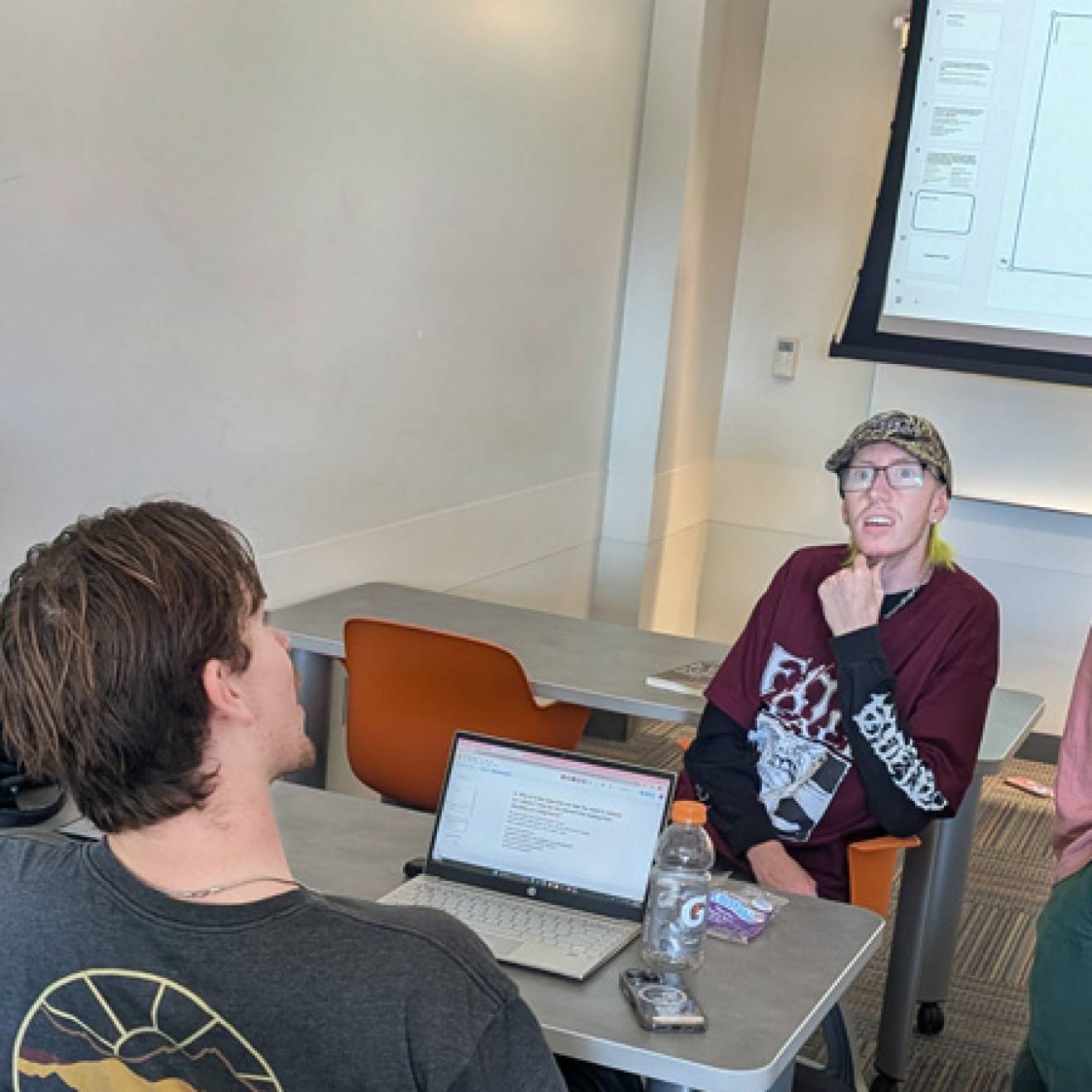Debra Herrick, UC Santa Barbara
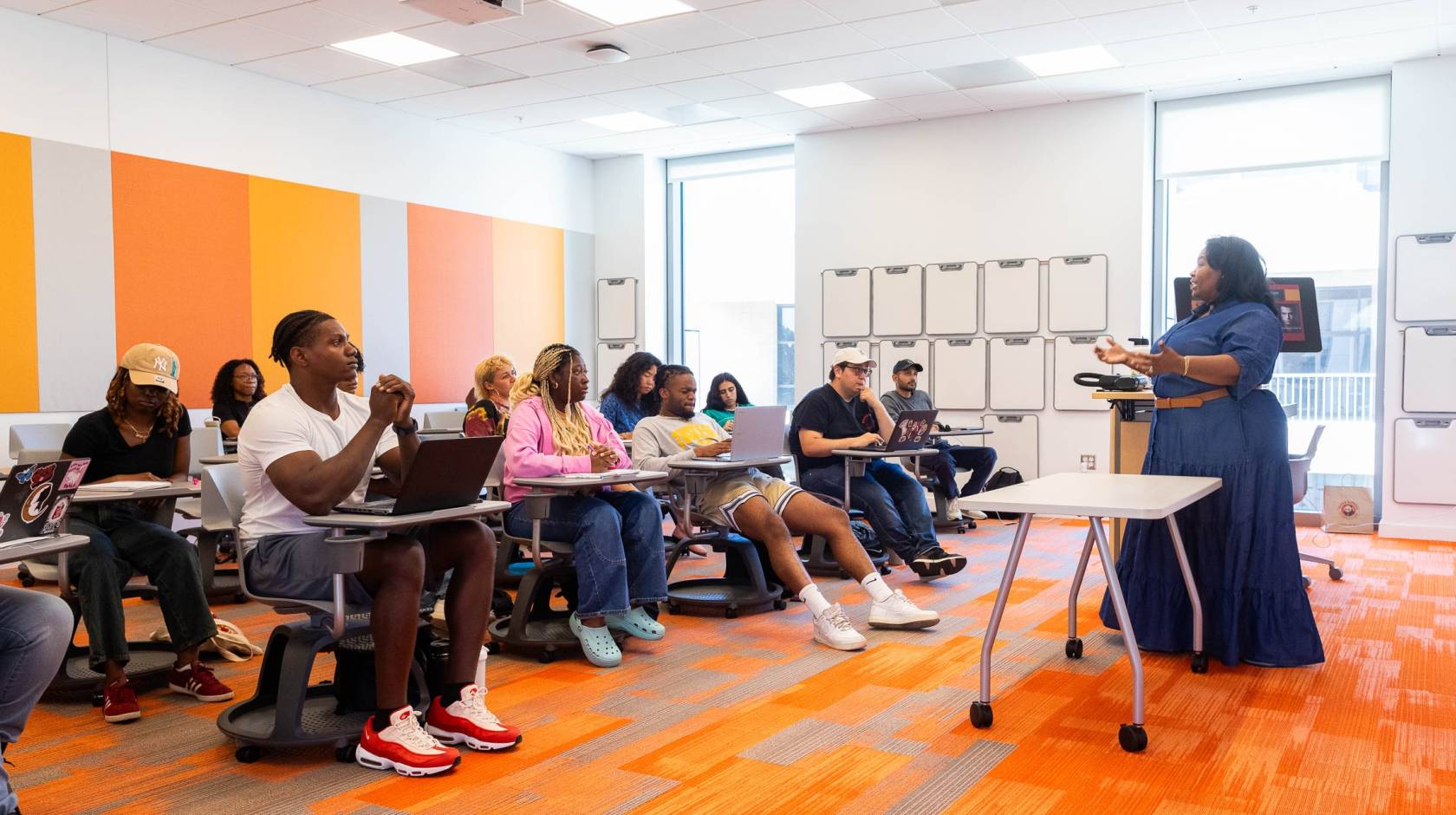
If you’ve heard Octavia Spencer give an interview, you can probably tell she’s from the South. But someone who really understands her voice can tell she’s from Alabama. Reese Witherspoon on the other hand? Her voice reveals she’s from Tennessee. And a good dialogue writer knows, it’s not just the twang. It’s the culture.
A unique pilot program at UC Santa Barbara focuses on writing for diverse voices, creating a new kind of space between a Hispanic Serving Institution and an HBCU (Historically Black Colleges and Universities). Ten Booker T. Washington Scholars from Alabama’s Tuskegee University — an HBCU — will spend the summer at UCSB — an HSI — taking classes in screenwriting.
“We find ourselves at a pivotal juncture in our human history, where the call for fresh and diverse perspectives to be acknowledged is paramount,” said UCSB Michael Douglas Dean of Humanities and Fine Arts and Professor Daina Ramey Berry. “It is time when compelling narratives must emerge and take center stage.”
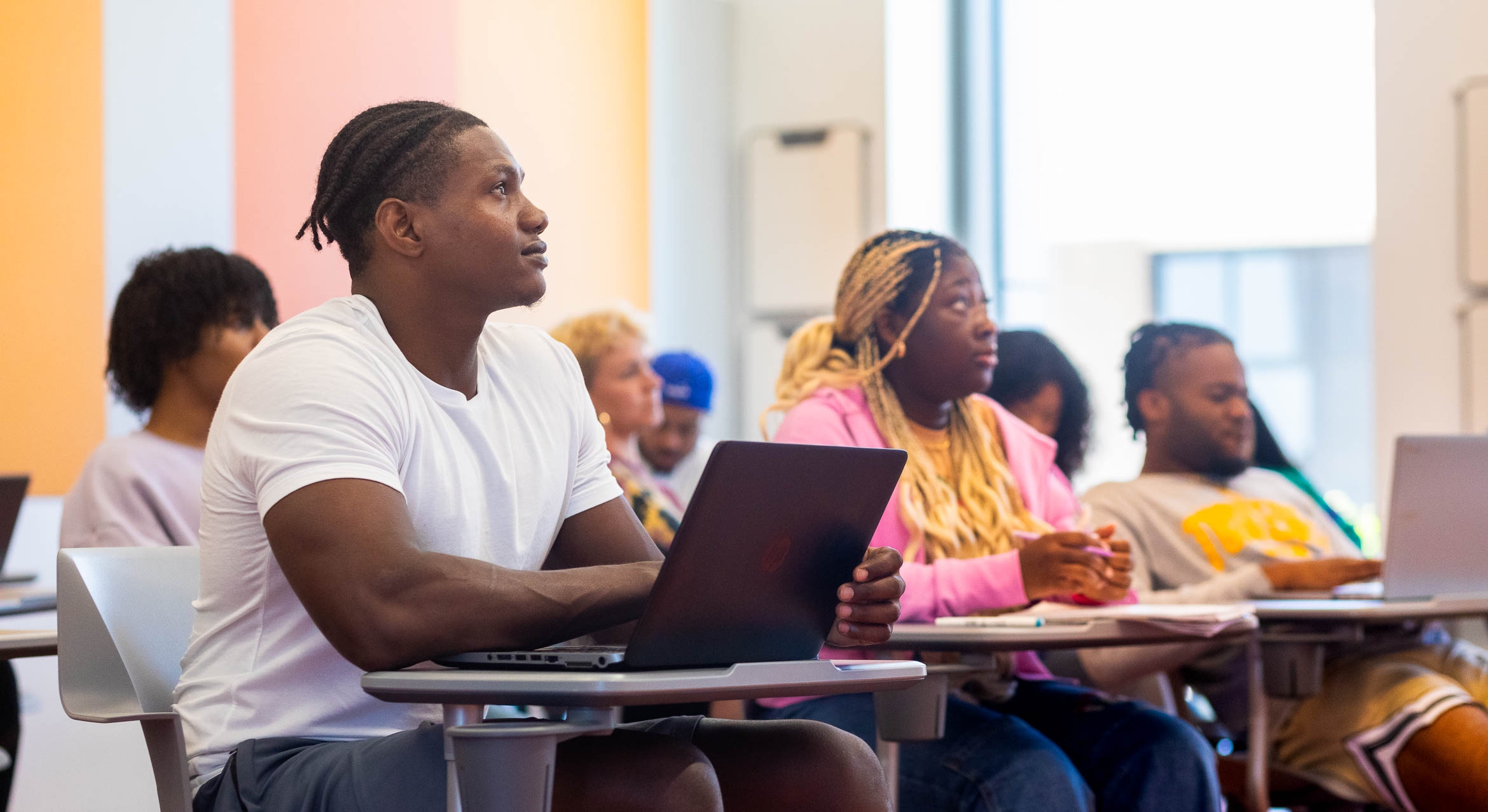
The Tuskegee Scholars Program brings together 10 Black students from Tuskegee and 15 students from UCSB for six weeks to take classes in TV writing and introduction to cinema, along with field trips to studios in Los Angeles for hands-on experience. The program seeks to prepare students for careers in the film industry by providing exposure and research opportunities, especially for students who may not have had access to such experiences and those who seek to present different cultural perspectives in storytelling.
The program also aims to plant the seeds for an entertainment industry in Tuskegee by growing the local talent with guidance from top-level educators and industry professionals.
While UCSB’s Department of Film and Media Studies was launched in 1973, for Tuskegee the summer scholars program is a beginning, as the college seeks to develop its own film and media studies program. UCSB’s Tuskegee scholars are all working towards a concentration in film and media arts.
“In many ways, the program echoes the historic mission of Tuskegee University, which was founded to provide both academic and industrial education,” said Berry, who partnered with film and television executive Adriane Hopper Williams to launch the program. Williams was born on the Tuskegee Institute campus at Alabama’s first hospital to serve people of color, John A. Andrew Memorial Hospital, where her father was the director and later the vice president of health affairs. Today, Williams and her husband Derrick own a production services company called DNA Media Group, and laid the groundwork for what is now, The Legacy Lives: Tuskegee, a non-profit organization committed to revitalizing Tuskegee’s university and town.
“We are excited about our academic partnership that allows our students to be exposed to the film and entertainment industry,” said Tuskegee University Provost S. Keith Hargrove. “UCSB has been phenomenal in its outreach and collaboration with Tuskegee University to invite and engage our students, receive academic credit and create a unique experience for both institutions through a summer program initiated by Ms. Adriane Hopper Williams. We intend to further expand our partnership with a faculty exchange and support the potential development of a film degree at Tuskegee University.”
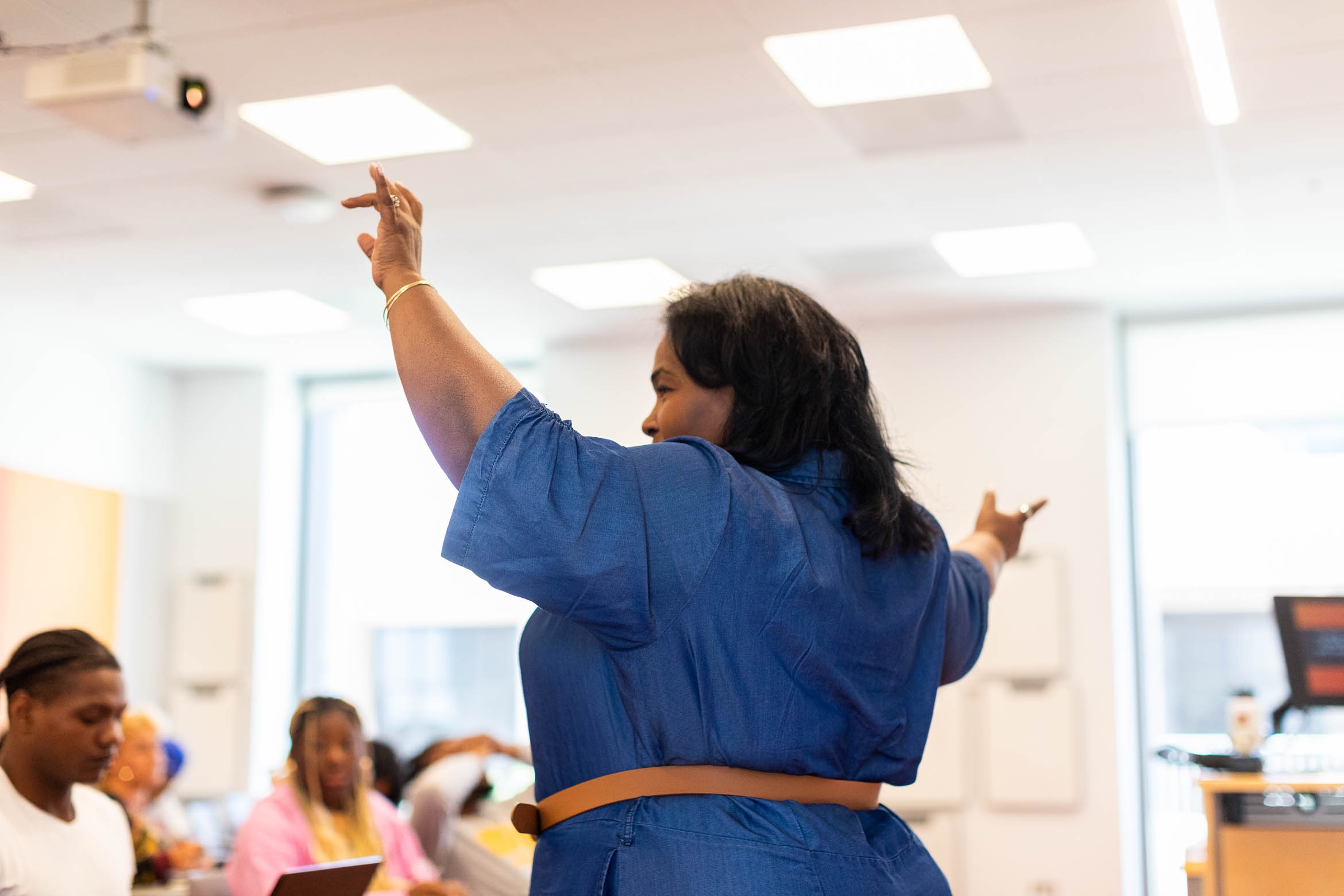
“Our objective for our partnership with UCSB specifically is to create a diverse learning environment where Tuskegee students and UCSB can learn from each other and both programs can benefit from what the other has to offer,” said Williams. “Studies have confirmed that working with similar people makes us intellectually lazy so we want to expand the perspectives and points of view of all students involved in order to enrich their creative output. I am tired of hearing that there are not enough qualified Black people to hire for industry professions and we believe that this program will help to change this narrative.”
Hallmark Mahogany’s “Napa Ever After” writer Wendy Eley Jackson, a UCSB lecturer, will teach the cohort’s flagship course in writing for television, including sections on the discovery and cultivation of story concepts, the language of film and the structuring of scripts. “Everyone writes from the lens of their experience or where they allow their imagination,” said Eley Jackson, who was born in Alabama. “Students really want to learn how to ‘write to voice’ more than ever before.”
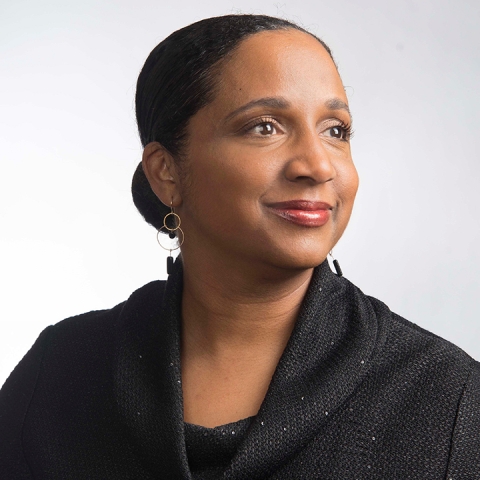
Daina Ramey Berry is an internationally recognized scholar of the enslaved and a specialist on gender and slavery and Black women’s history in the United States. Berry is the award-winning author and editor of six books and numerous scholarly articles.
While the scholars are on campus, Eley Jackson said, the hope is that they have a sense of belonging while in a program that is comfortable, collaborative and safe. Her Alabama background is no coincidence. Dean Berry enlisted her — at least in part — because of it.
“My mom and all her sisters graduated from Tuskegee,” Eley Jackson said. “My father was one of the original Red Tails of Tuskegee Airmen. I myself was born in Dothan, Alabama, right south of Tuskegee, and I took my first steps, at nine months old, on the tarmac of Moton Field in Tuskegee. I spent every summer on that campus from the time I was nine months to 15. I can recognize the tree where my family members’ pledged a sorority. I know the voice.”
By learning how to research and write to voice, students elevate the potential for complex portraits of Black families and communities in mainstream media and streaming.
“Narrative possesses the remarkable capacity to construct connections rooted in understanding, tolerance, empathy and respect, guiding us in comprehending the intricacies of our lives and the ever-evolving world surrounding us,” Berry added. “The time has now arrived for us to harness the boundless potential of storytelling, as manifested through the realms of entertainment and the performing arts, to ignite social transformation.”
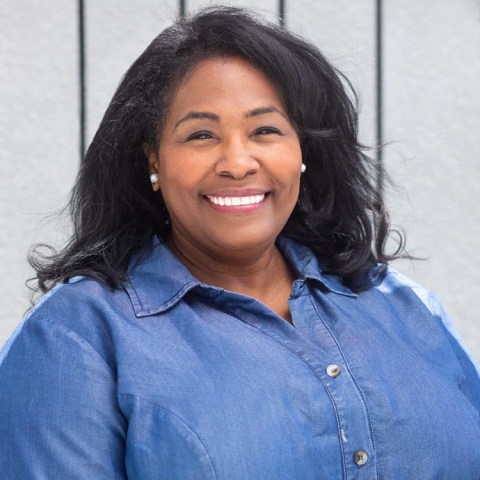
Wendy Eley Jackson teaches basic and advanced screenwriting for television, contemporary screenwriters, creative writing and film as literature.
Big picture is for Tuskegee to start with a concentration program in film and media arts and to grow it over the next two years to a full degree program. Starting in the summer program at UCSB, students will immerse themselves in the art of cinema, television and media production as they learn the arts of writing, development, cinematography, sound and editing. Through DNA Media Group and The Legacy Lives: Tuskegee summer program, students have been invited to interact with Ayo Davis, president of branded television at Disney Studios. They will also have conversations with Jamila Hunter, president of MACRO Television (“Mudbound;” “Fences;” “They Cloned Tyrone” and “Judas and the Black Messiah”). Finally, they will also meet industry professionals from Sony Studios. Come fall, Tuskegee will offer classes in development and pre-production of film and television and introduction to film, allowing students to continue to pursue their professional dreams.
“The highly regarded film and television program at UCSB offers Tuskegee students an opportunity to pursue and develop their interests in film and television, screenwriting, production, etc.” said Wayne A. Barr, director of choral activities and interim chair of Tuskegee’s Department of Fine and Performing Arts. “We hope for the enthusiasm and positive experiences of this first cohort of Booker T. Washington Scholars to ultimately lead to the development of a film and media arts program at Tuskegee University in the near future.”
Tuskegee alums, including Grammy winners Lionel Richie, The Commodores and Tom Joyner, American writer Ralph Ellison and entertainer Keenan Ivory Wayans, have used their talents to create inclusion both in front and behind the scenes in American industry.
Williams, who first initiated talks for the program, was inspired to act after visiting Tuskegee in 2021, when she “discovered that this university town — once a vibrant hub of Black educators, physicians, entrepreneurs — was now in severe decay.”
“I was inspired to do something about it, immediately,” she said. Her mother, Barbara Hopper, owned a Tuskegee real estate company, New Horizons Realty, and developed properties throughout the town between 1971 and 1981. “One of the first things I remember my mother doing was starting a school out of the old Varner slave plantation and calling it Tuskegee Laboratory and Learning Center. She saw a need and she filled it with top level instructors. That is where my brothers and I went to elementary school.”
Years later, the family would move to California when her father, Dr. Cornelius L. Hopper, was hired as the vice president of health affairs for the University of California systemwide.
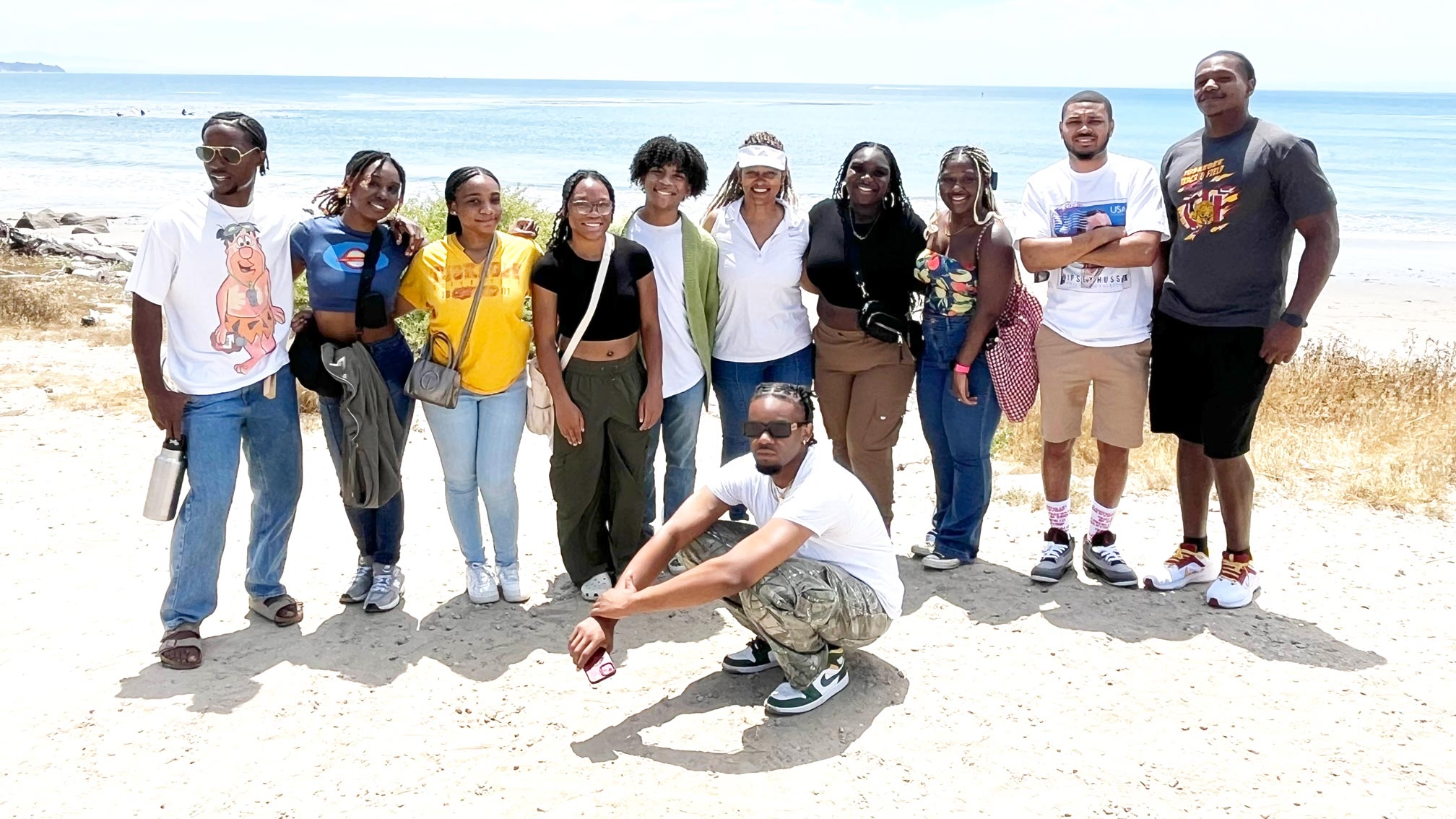
“So if you want to know my history with Tuskegee University, UC schools and understand my desire to launch an educational program, it started with my parents’ life-long commitment to higher learning, and our deep love for Tuskegee,” she said.
Williams and her husband have a combined 30 years of experience in the entertainment industry, including an Emmy and four Emmy nominations. In addition to Greene from MACRO, industry executives that have advised the program launch include Stephen Galloway, Chapman University’s dean of film and media arts.
“It is so incredibly exciting to see this partnership with Tuskegee University develop,” said Tim Sherwood, interim dean of UCSB’s College of Creative Studies (CCS). “Dean Daina Ramey Berry is a visionary leader and the opportunity to work with her and CCS faculty Wendy Eley Jackson in seeing this program become a reality has been a true pleasure!”
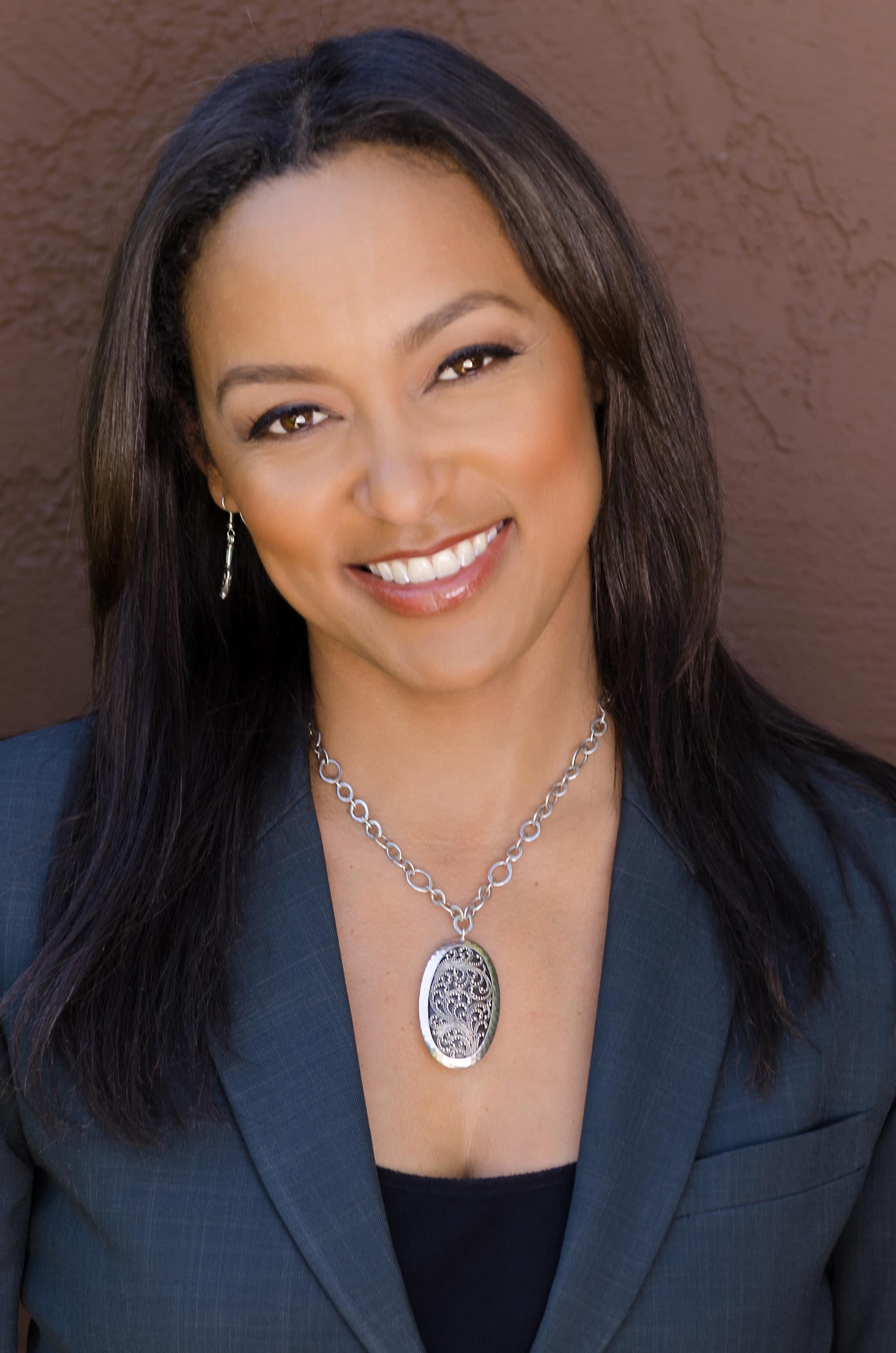
Adriane Hopper Williams is an Emmy and Gracie award-winning executive producer and president of EnLight Productions, Inc. Her focus is on telling stories of transformation.

